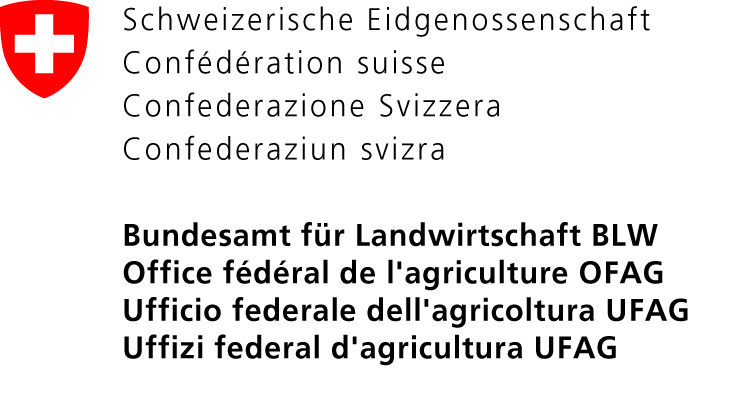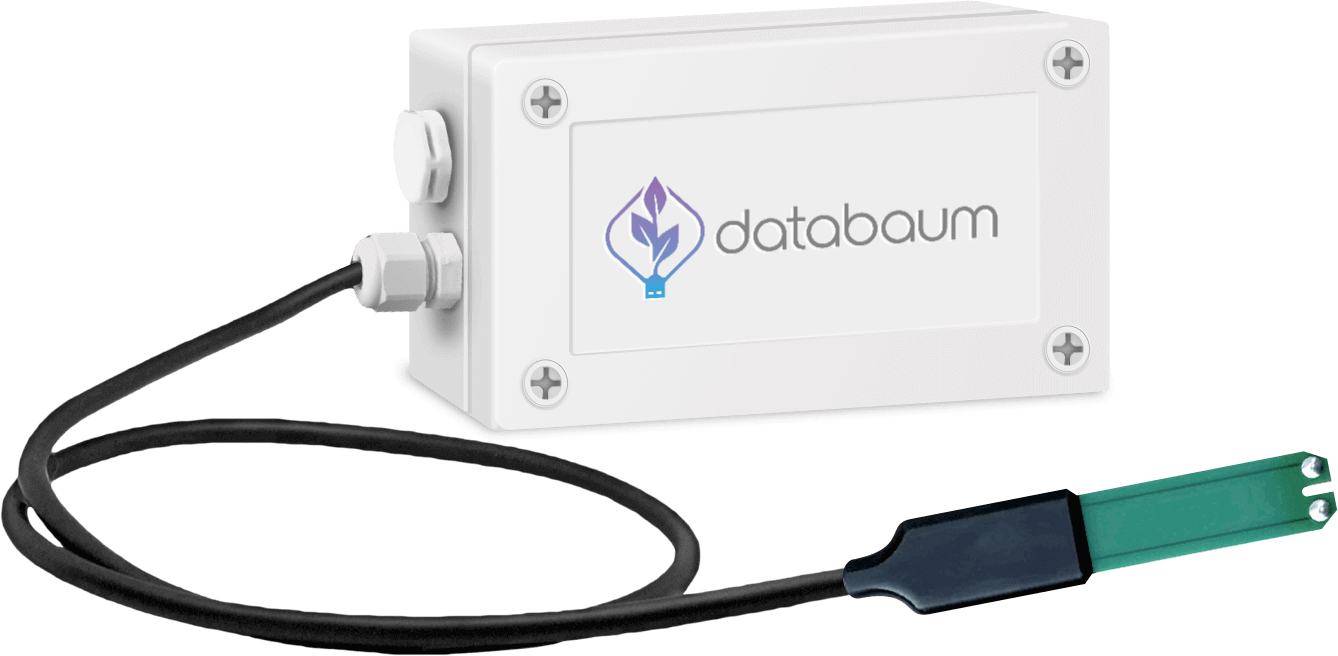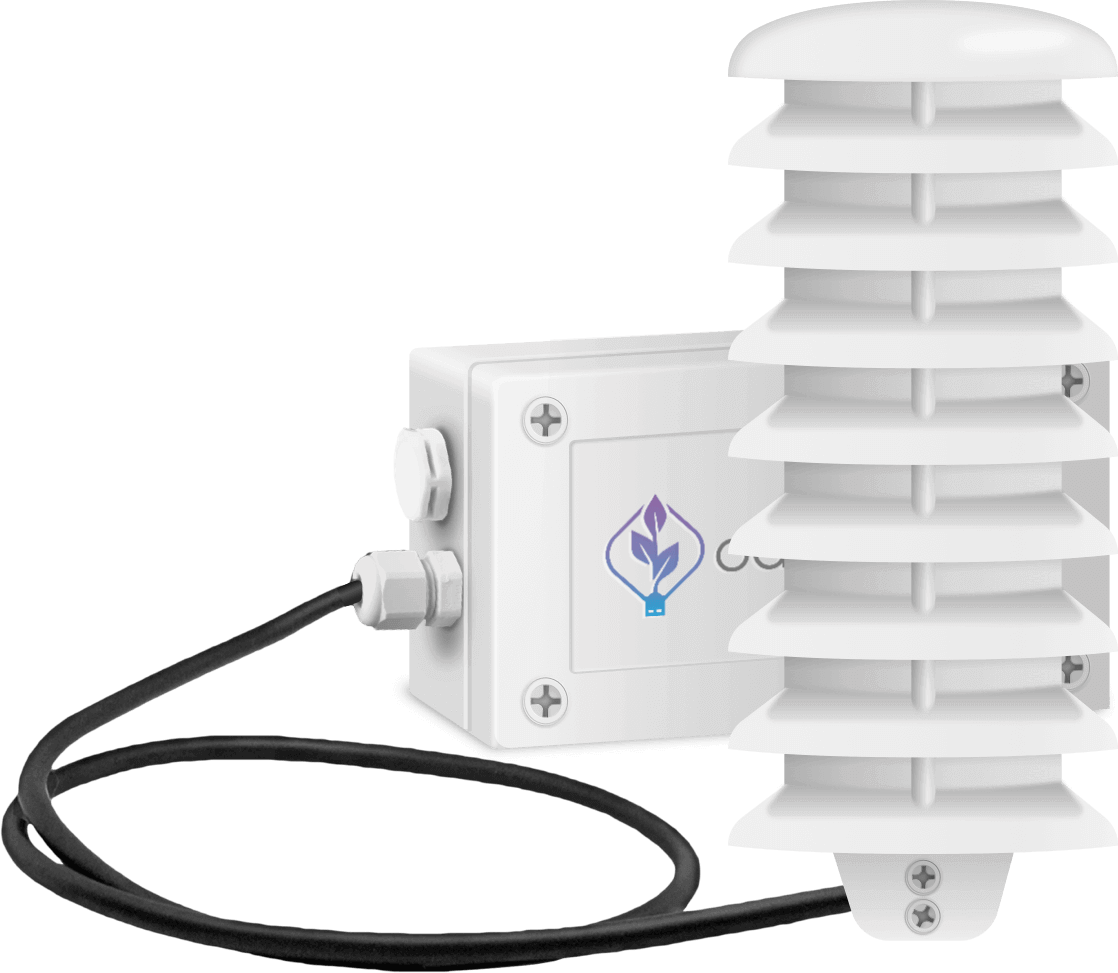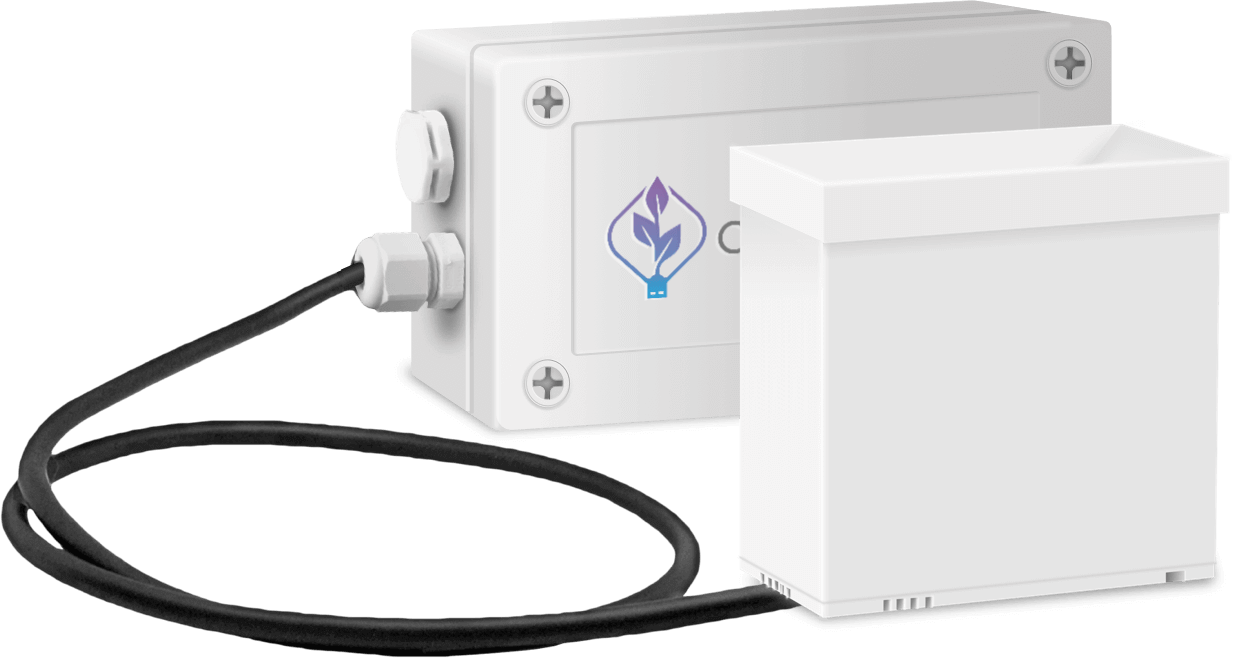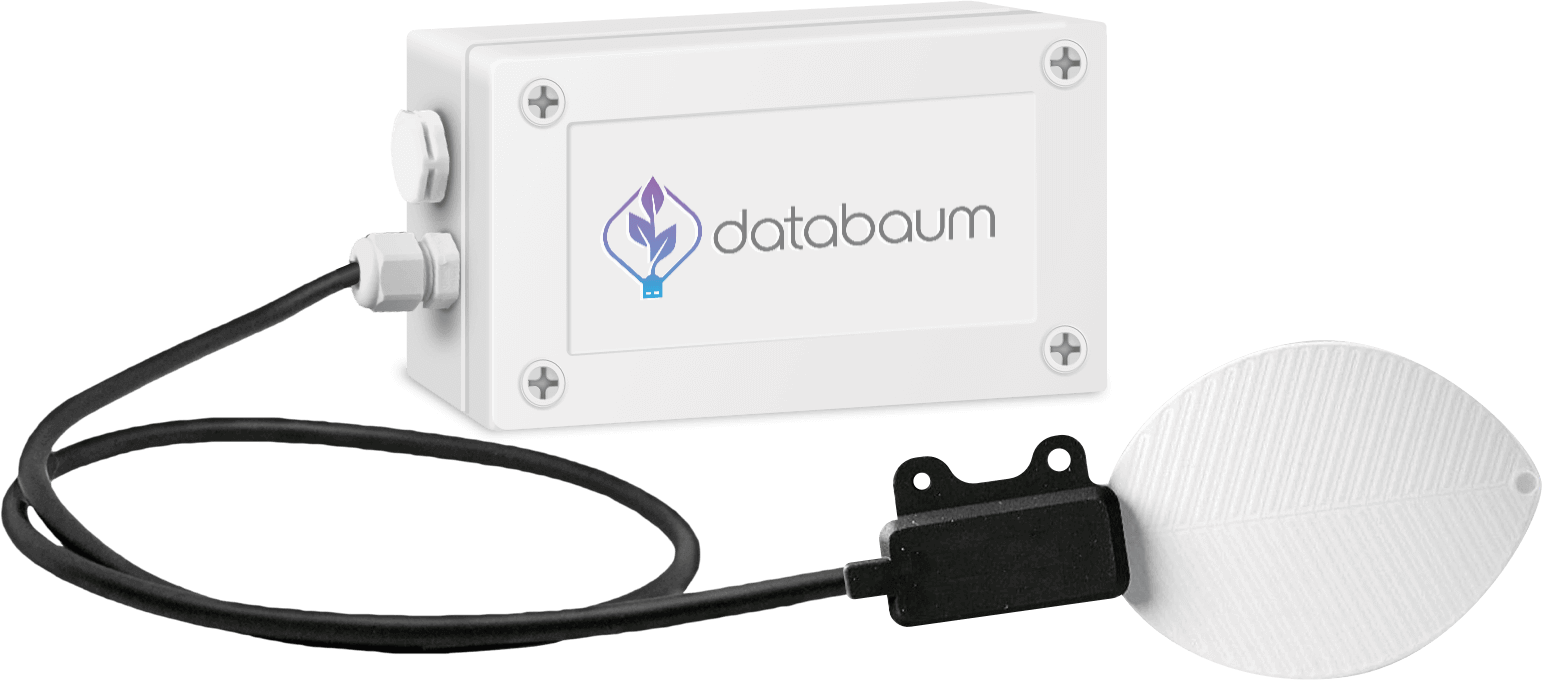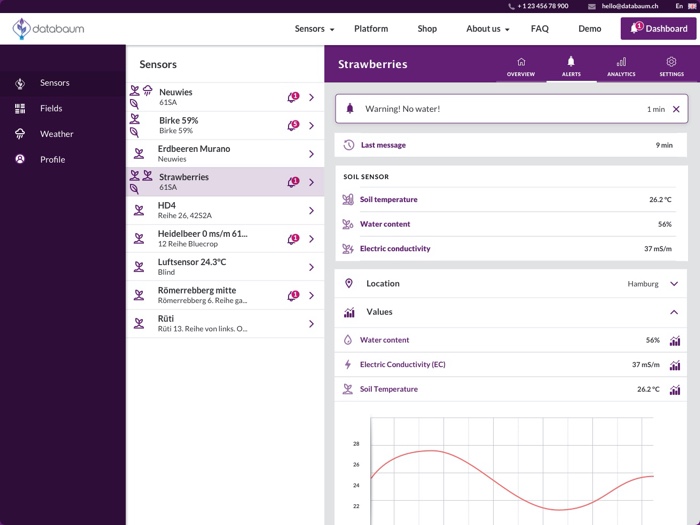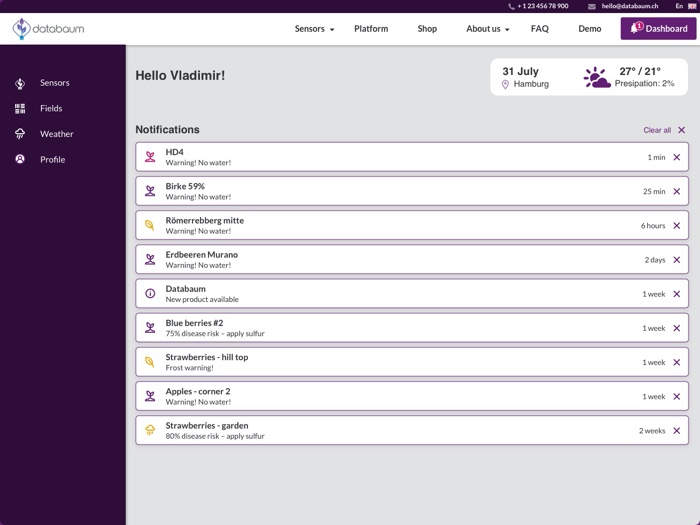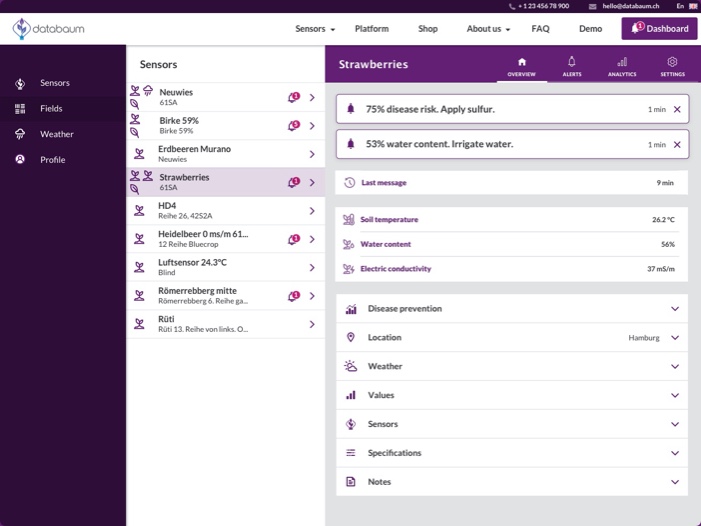Through the combination of our self-developed sensors, collection of primary data from your fields and external data from other projects we are in the position to show you the most relevant data on our platform and even provide suggestions for smarter farming based on advanced AI prediction models.
Smarter farming
through better predictions
The disease management tool for successful and healthy farming. Work less, increase your yield and save on pesticides.
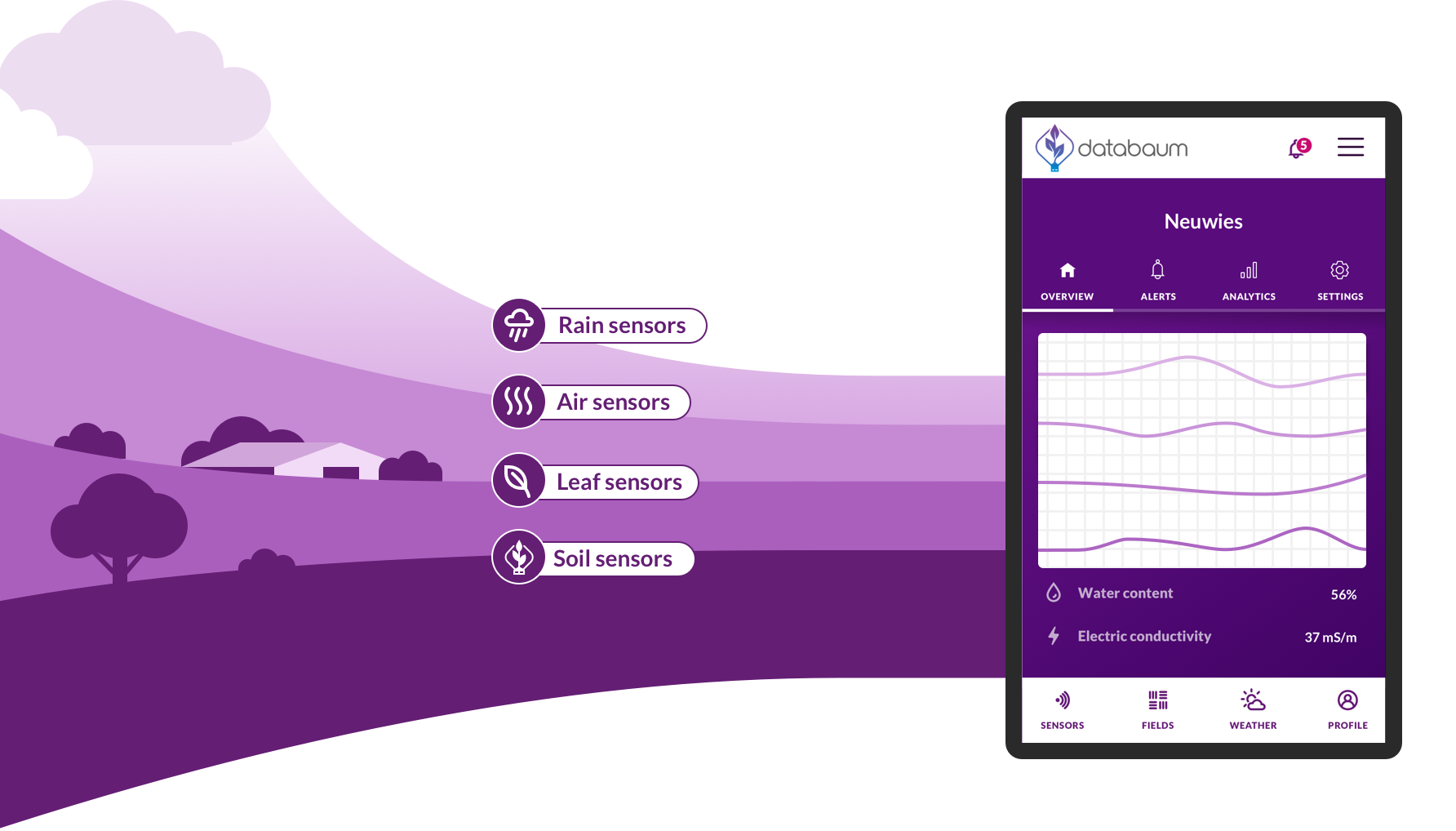
How does it work?
Our sensors
Our four key sensors collect data that will allow us to generate the relevant information for your smarter farming decisions
databaum Platform
We not only turn data into valuable information but also provide actionable recommendations for smarter farming decisions
Use cases
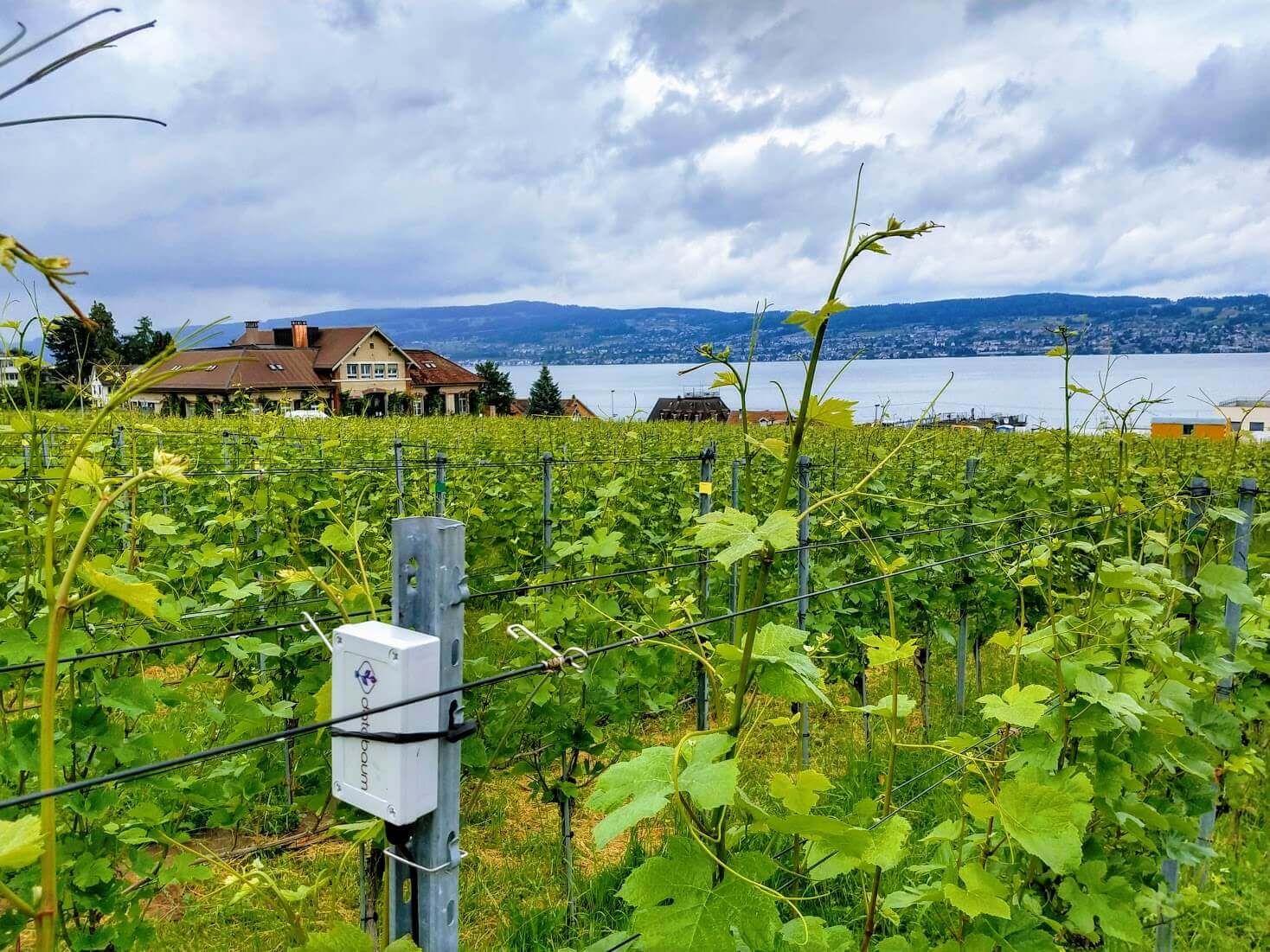
Viticulture Research
What effects do basalt mats have on the available water of the vines? The Weinbauzentrum Wädenswil is using databaum soil moisture sensors to figure that out.
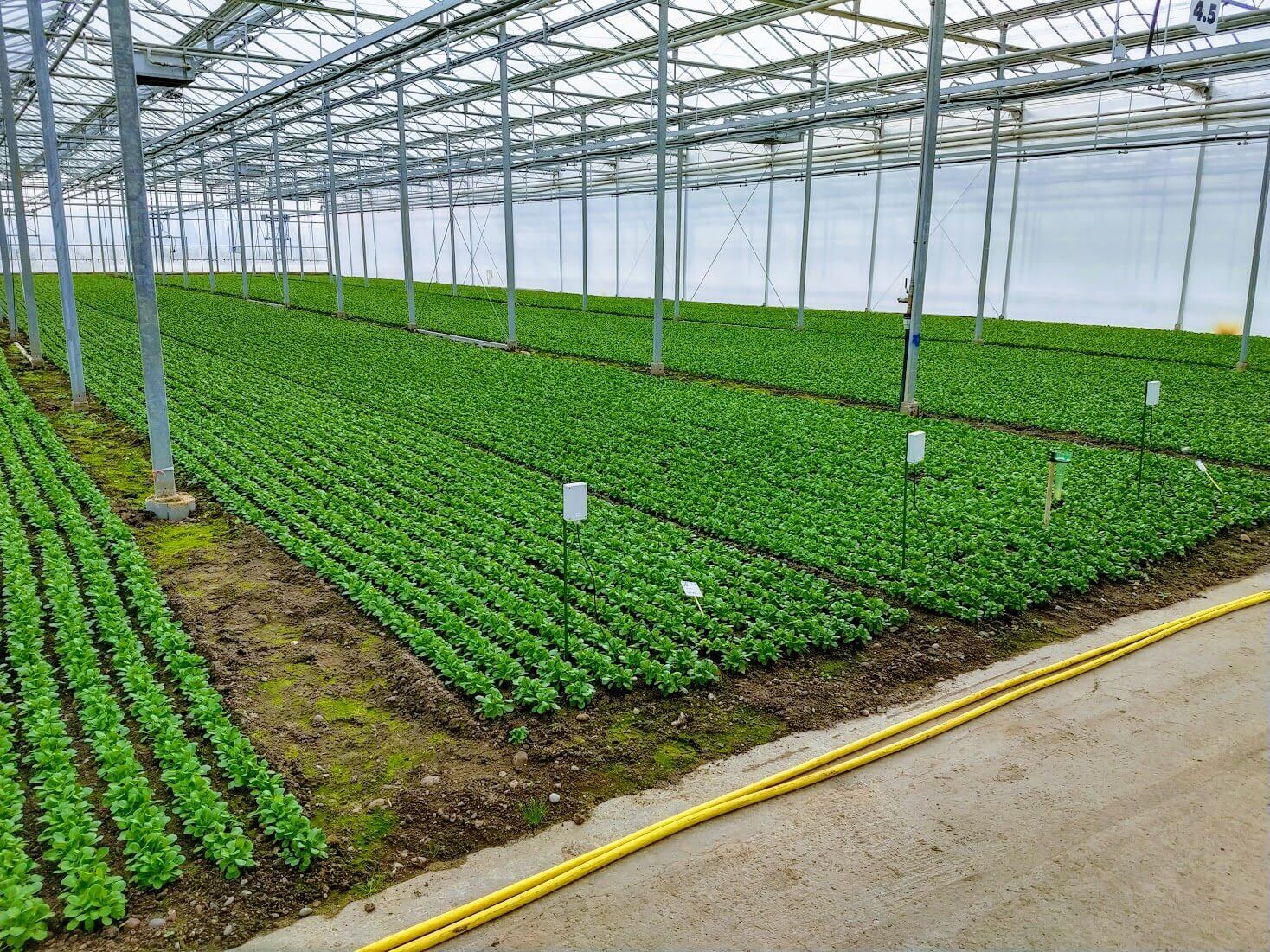
Vegetable growing
With the databaum sensors we optimize the water supply and also save some fertilizer. It was important to us that the sensors occupying the same soil display the same moisture values. We tested that and are satisfied.
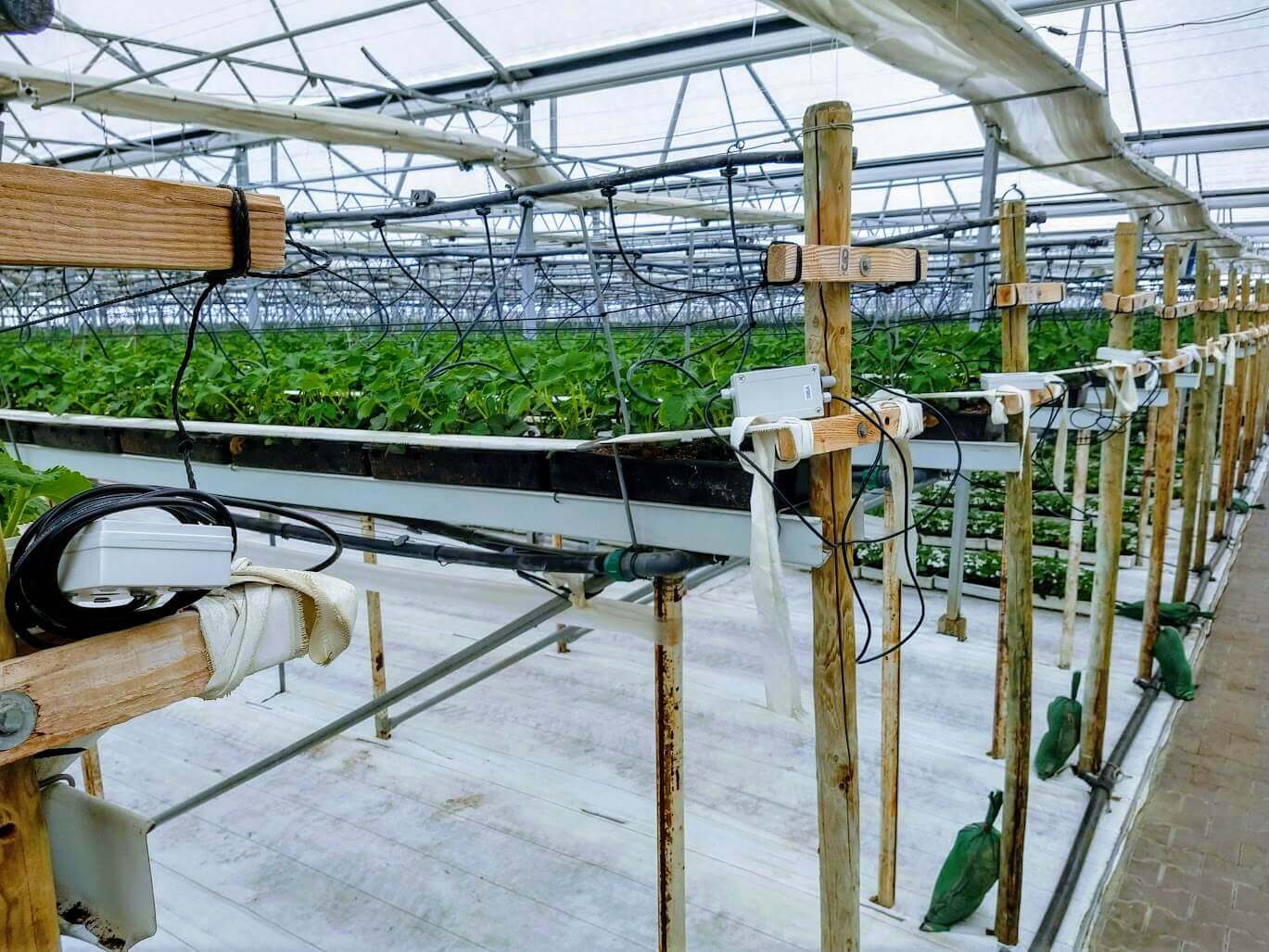
Fertilizer measurement in substrate
I'm using the sensors to measure the fertilizer content in my substrate strawberries. This way I can see tendencies over time and fine-tune my system. A few sensors are also measuring the EC of the drainage water. They were not designed for this purpose, but it works.
What are your benefits?

Water savings
- Only activate irrigation systems when it is necessary and achieve substantial water savings
- 45% of European water consumption goes into agriculture - savings here are of major importance to reduce environmental harm

Pesticide and fertilizer savings
- Precisely define amounts and timing for fertilizer and pesticide application and reduce the pollution of soil and ground water
- Achieve significant cost savings for fertilizer and pesticides as a side effect of reducing soil pollution

Yield security
- Benefit from the integration of artificial intelligence to accurately predict crop diseases and timely crop management
- European average probability for crop failures is around 40% - better disease predictions will help to reduce this rate




